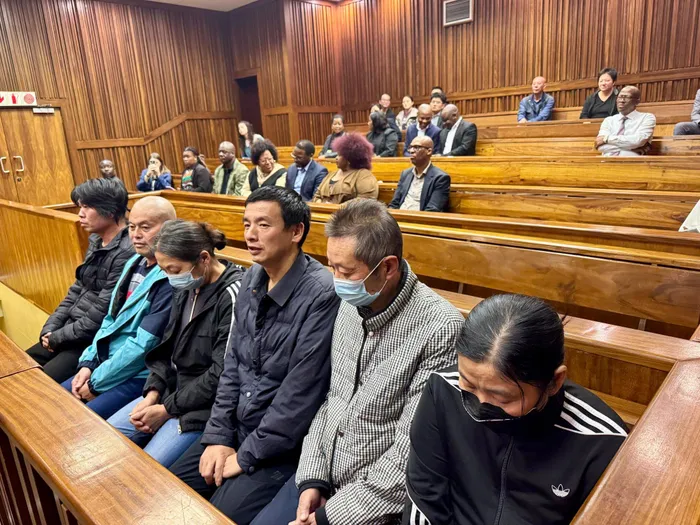South Africa has handed down a landmark judgment in the fight against human trafficking, sentencing seven Chinese nationals to 20 years in prison each for smuggling Malawian nationals into the country and subjecting them to forced labour under appalling conditions. The convicted traffickers, identified as Kevin Tsao, Chen Hui, Qin Li, Jiaqing Zhou, Ma Biao, Dai Junying, and Zhang Zhilian, were found guilty earlier this year on 158 of the 160 charges brought against them, including human trafficking, kidnapping, violating labour laws, and aiding illegal immigration.
The case dates back to 2019 when South African authorities, acting on a tip-off from an escaped worker, raided a factory in Johannesburg known as Beautiful City. What they discovered shocked the nation: 91 Malawian nationals, including 37 children, were trapped in the facility and forced to work under inhumane conditions. Victims testified that they were confined within the heavily guarded premises, unable to leave even to purchase food. The food they were given was described as dirty and unfit for human consumption.
According to investigators, the Malawians were smuggled into South Africa inside shipping containers, stripped of their freedom, and coerced into grueling 11-hour shifts, seven days a week. Workers were not provided with proper safety training or protective equipment, even though the factory dealt with recycled materials to produce cotton for blankets. South Africa’s labour laws stipulate a maximum of nine hours per workday and at least 36 consecutive hours of weekly rest, yet these regulations were blatantly ignored. The victims were also paid far below the national minimum wage of $1.64 per hour, and their wages were arbitrarily deducted whenever they requested time off.
The sentencing of the group, which includes both male and female supervisors alongside the factory manager Tsao, has been hailed as a significant victory against modern-day slavery in South Africa. The National Prosecuting Authority (NPA) applauded the ruling, emphasizing that such stiff punishments would help “bolster the fight against human trafficking” and send a clear message to perpetrators that South Africa will not tolerate exploitation.
Human trafficking has long been a growing concern in the country, with South Africa regarded by experts as a source, transit, and destination hub for traffickers due to its porous borders and economic disparities that make migrants vulnerable. Cases like this expose the brutal reality of how desperate individuals are lured or coerced into exploitative labour, often under the promise of better opportunities, only to find themselves trapped in modern slavery.
The Department of Labour, which played a key role in the factory raid, also welcomed the judgment, urging greater inter-agency collaboration to root out human trafficking and labour violations. Authorities stressed that preventing such crimes requires not only stronger border controls but also stricter monitoring of businesses to ensure compliance with labour standards.
This case serves as a stark reminder of the dangers faced by vulnerable migrants across the region and the urgent need for governments, civil society, and international partners to step up their fight against trafficking networks. As South Africa continues to grapple with the scourge of human trafficking, the 20-year prison terms handed to the seven Chinese nationals mark an important step toward justice for the victims and a warning to exploiters across the country.













Leave a comment